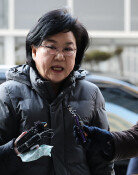[Op-Ed] Germanys Center-Right Ruling Coalition
[Op-Ed] Germanys Center-Right Ruling Coalition
Posted September. 29, 2009 08:27,
Between 1966 and 1969, West Germanys grand coalition of the Christian Democratic Union and the Social Democratic Party enabled German political circles to regain their peoples trust, help the nation overcome economic crisis, and handle the discord between East and West Germany. This was written on the homepage of the Korean presidential office of Cheong Wa Dae four years ago. The politically limited Roh Moo-hyun administration kept asking the then opposition Grand National Party to form a ruling coalition, but sought just one aspect of West Germanys coalition example while distorting the bigger picture. The coalition sparked a student movement against the West German government in 1968. Many people who lived in West Germany in the late 1960s cannot even remember the name of their leader at the time.
In November 2005, Germanys right-wing Christian Democratic Union, which failed to win a majority of votes in general elections, formed a coalition with the center-left Social Democratic Party for the first time in 36 years. Angela Merkel rose to become Germanys first female chancellor but failed to become another Margaret Thatcher. Whenever the Christian Democratic Union attempted to deregulate, reduce welfare benefits, and cut taxes, its efforts were blocked by the Social Democratic Party. Accordingly, the coalition lost popular support while Merkel took credit for her silent charisma. Though the Christian Democratic Union had a parliamentary majority, it could not run Germany as it wanted to. Accordingly, it might have thought of forming a coalition with another right-wing party.
In Sundays general elections, the coalition of the Christian Democratic Union, the Merkel-led Christian Socialist Party, and the right-wing Free Democratic Party won more than half of the votes, creating Germanys first center-right government in 11 years. The conservative Free Democratic Party seeks tax cuts and deregulation. Its good performance in the elections will help Merkel pursue true reform for Germany, which has driven the European economy. The German magazine Der Spiegel expressed both expectation and worry, saying, Will Merkel turn from a mother to a woman of iron?
The Social Democratic Party is apparently the biggest loser in these elections. The left-wing party, enthralled by anti-market, anti-globalization and anti-capitalism, has been branded a political party that opposes for oppositions sake. Der Spiegel said the party might not free itself from this image. In the European Union elections in June, center-left parties won just a quarter of seats. Unlike center-left parties, right-wing parties have pursued center, moderate and practical policies to attract voters in the wake of the global financial crisis. The question for Korea is how its main left-wing party, which unreasonably suggested a ruling coalition four years ago, responds.
Editorial Writer Kim Sun-deok (yuri@donga.com)



![반찬통 착색 고민 끝…‘두부용기’ 버리지 말고 이렇게 쓰세요 [알쓸톡]](https://dimg.donga.com/c/138/175/90/1/wps/NEWS/IMAGE/2026/01/09/133126593.3.png)

![“생수병, 버리지 말고 자르자”…주방 밀폐 용기 끝판왕 [알쓸톡]](https://dimg.donga.com/c/138/175/90/1/wps/NEWS/IMAGE/2026/01/06/133101939.3.png)

